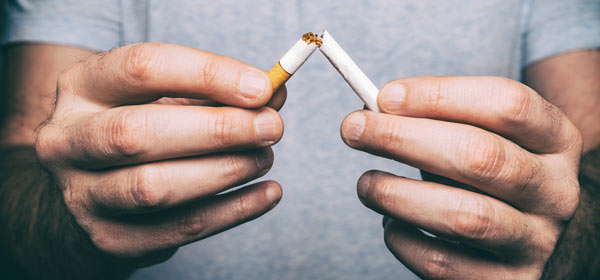Whether you want to start brushing twice daily or stop biting your nails, most of us have at least one habit we should make or break. It all comes down to these three steps:
Step 1: make it conscious
The first step is to be aware of the habit. Figure out when and why you smoke, bite your nails or crack your knuckles. Compulsive body-focused nervous habits come in many forms, from harmless to damaging. Locating the underlying reason or emotional catalyst for your habit will help you to end it.
When it comes to forming a habit, scheduling it into your routine will help it become a normal part of your day. For instance, if you want to start brushing your teeth in the morning, try leaving yourself a reminder note on the bathroom mirror or tick the days you do it off a calendar.
Step 2: set a goal
According to a study done at UCLA, people who visualise themselves in the process of completing their goals are more likely to be consistent and actually achieve them. Instead of wishing you read more, set yourself a goal of reading a book every two weeks or 20 books over the year. Then write it down and choose some books to make it real.
When quitting a habit, realistic goals are important. For some people, stopping cold turkey works, but for most of us it’s about taking small steps and being consistent with the behaviour. Being patient with yourself also goes a long way – practice makes perfect.
Step 3: Switch the bad for good
Switching out a bad habit for a harmless one is important when breaking a habit. This is called ‘competing behaviour’. Whenever you feel like engaging your bad habit, have a diverting action ready. For example, when you want to stop biting your lip, pop in a piece of chewing gum instead. If you compulsively reach for your phone to check for messages, keep a smooth stone in your pocket and hold that for a few minutes instead.
When forming a new habit, switching passive thoughts for active thoughts is important. If exercising more is one habit you want to learn, each time you think ‘I should go for a walk now’ try giving yourself a five-minute leeway before starting. The more you sit around thinking about it, the less likely you will actually do it. Train yourself to be reactive to your thoughts; each time you just get up go, it will become easier.
Remember, forming new habits and breaking bad ones is about reshaping the neural pathways. Your brain learns to expect particular behaviour and it’s within your power to retrain your brain.
Have you ever successfully made a new habit or stopped a bad one? What worked for you?
Related articles:
Learning to break a nervous habit
How to kickstart your exercise routine
What smoking does to your body

